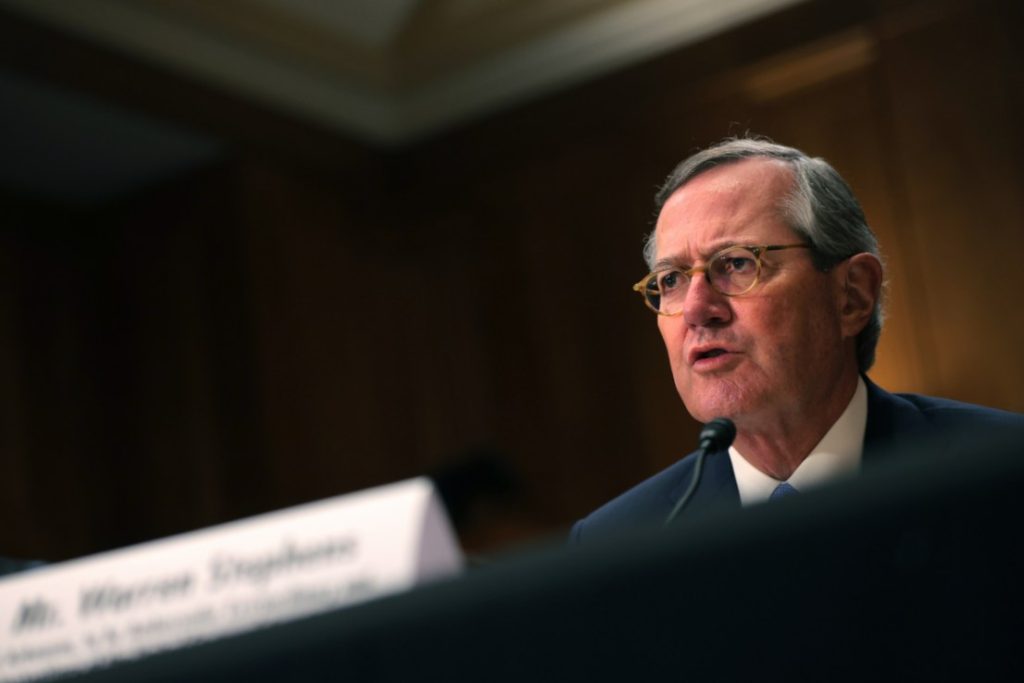Sky-high energy bills threaten UK’s economic standing, warns US envoy
At a prestigious gathering in the Savoy Hotel on Wednesday, Warren Stephens—appointed as US Ambassador to the UK in May—delivered a stark warning: Britain’s lofty domestic energy prices risk undermining its position as a leading global economy. With household and industrial tariffs among the highest worldwide, businesses across all sectors are finding operations in the UK prohibitively expensive.
“Chief obstacle” to growth
“Energy costs in the United Kingdom are too high on which to run an industrialised economy,” Stephens told an audience of business leaders and diplomats. “Every business I meet, in every sector, complains to me that energy costs make the UK an expensive, and difficult, place to do business. It does not take an economic savant to know that is not a good combination.”
He emphasised that meaningful economic recovery hinges on affordable power. “Improving the economy all starts and ends with energy. If there are not major reforms to UK energy policy, then the UK’s position as a premier global economy is vulnerable,” Stephens declared.
Comparisons with US concerns
The ambassador’s critique echoes grievances expressed by US President Donald Trump, who in a UN address lambasted Britain’s North Sea taxation. “The North Sea is so highly taxed that no developer, no oil company can go there,” Trump asserted, aligning with Stephens’ assessment that excessive levies deter investment.
Impact on industry: a chorus of complaints
From manufacturing plants to data centres, firms across the UK cite power costs as a critical factor in relocation or downsizing decisions. Industry surveys indicate that nearly 70% of energy-intensive manufacturers have reviewed their site footprint in the past year due to soaring electricity and gas tariffs. “Our margins are evaporating,” one Midlands factory owner confided. “We’re forced to decide whether to automate more or move staff offshore.”
Policy reform imperatives
Ambassador Stephens urged Government ministers to consider a suite of measures to alleviate pressure on businesses and households:
- Revising green levies and network charges that inflate consumer bills by an estimated £200–£300 annually.
- Introducing targeted subsidies or rebates for energy-intensive industries to preserve domestic production.
- Streamlining approval for new gas storage and interconnector projects to boost supply resilience.
- Negotiating long-term power purchase agreements (PPAs) to stabilise pricing volatility for large users.
Without such reforms, the ambassador warned, the UK risks losing further investment to competitor nations with more competitive energy regimes.
Pharma sector also on the brink
Beyond energy, Stephens flagged another critical issue: pharmaceutical investment. “If there are not changes made and fast, pharma businesses will not only cancel future investments, they will shut down their facilities in the UK,” he cautioned. The NHS’s drug procurement model—currently under review by Health Secretary and Chancellor—sets price caps that US-based firms argue are too low to sustain R&D and manufacturing on UK soil.
“This would be a major blow to a country that prides itself, rightly so, on its life sciences sector,” Stephens noted, referencing decisions by Merck and AstraZeneca to pause or scrap UK expansion plans. With proposals to raise NHS purchase thresholds by up to 25%, ministers hope to stave off potential tariffs and maintain Britain as a competitive location for biotech and pharmaceutical giants.
Tariff threats and trade leverage
The White House has signalled readiness to impose tariffs of up to 100% on UK pharmaceutical imports if no pricing alignment is reached. Officials describe this as part of a broader push to address “significant disparities” in drug costs between the US and other markets. Ambassador Stephens’ remarks underscore the fine line ministers must tread: balancing taxpayer affordability against retaining critical manufacturing capacity and skilled jobs.
Economic resilience through diversified energy
In his address, Stephens also praised recent strides toward renewable generation, but urged caution. “Diversification is key, yet intermittent sources must be complemented by reliable baseload capacity,” he said. He highlighted the rollback of coal as an environmental victory, yet warned that over-reliance on wind and solar without sufficient storage or reserve gas plants exacerbates price spikes during periods of low wind or high demand.
Voices from UK business communities
Britain’s leading manufacturers’ association welcomed the ambassador’s comments. Director General Emma Stewart said: “Energy costs are consistently cited by our members as their top concern. We urge the Government to heed these warnings and deliver pragmatic reforms that ensure our industries remain viable.” Similarly, the Confederation of British Industry is organizing an Energy Summit in January to forge consensus on actionable policy interventions.
A diplomatic dilemma
The UK government now faces a dual challenge: reassuring US partners worried about Britain’s commercial and security resilience, while managing domestic sentiment on energy transition and healthcare spending. With inflation lingering above target, the Chancellor must navigate these competing priorities ahead of the Budget and COP30 climate talks. As Ambassador Stephens made clear, the stakes could not be higher for Britain’s global economic credentials.
